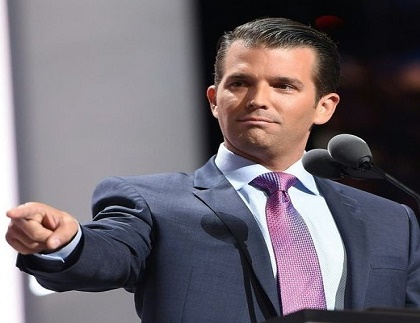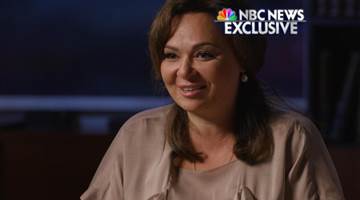Donald Trump Jr. was within his rights to meet with Russian lawyer: James Robbins

The saying in the Watergate days was that “it’s not the crime but the cover-up.” These days, you don’t need a crime or a cover-up to trigger outsized political outrage, just a heavy dose of bad optics.
The latest hyperventilating from the anti-Trump crowd is over a chain of emails from June 3-8, 2016 between Donald Trump Jr. and music producer Rob Goldstone. Goldstone was acting as an intermediary to set up a meeting between Trump and Russian lawyer Natalia Veselnitskaya. According to Goldstone, the purpose of the meeting would be to pass along “very high level and sensitive information” that “would incriminate Hillary and her dealings with Russia.” Goldstone opined that this was “part of Russia and its government’s support for Mr. Trump.”
Goldstone said he was told “she has information about illegal campaign contributions to the D.N.C.” It would also have been reasonable to have assumed that the promised information had to do with the shady 2013 “Uranium One” deal, in which a Russian company with close ties to the Kremlin was allowed to assume control of one-fifth of all uranium production in the United States, while at the same time millions of dollars were flowing from interested parties in Russia to the Clinton Foundation and to Bill Clinton personally. The idea that Veselnitskaya was peddling information from hacked DNC servers would not have been obvious, since that story came out later, on June 14 — and even then it was reported that the hackers stole opposition research on Donald Trump.
However, when the meeting happened on June 9, no anti-Hillary information was forthcoming. Veselnitskaya only wanted to discuss a sanctions law called the Magnitsky Act, and claims she “never had any damaging or sensitive information about Hillary Clinton.” Goldstone, who apparently had been misled, called it “the most inane nonsense I’ve ever heard.”
This story is hardly as inane as the collective furor that has been generated around the Russia issue writ large. Although four (or, according to the Clinton camp, 17) intelligence agencies concluded the Russian government attempted to influence the 2016 election, there is no evidence that any of these attempts succeeded. Donald Trump won fair and square, unless you want to assert that somehow Russia hacked Michigan’s paper ballot system.
But those who are dead-set on invalidating the election results by other means still persisted. Lacking evidence of actual crimes, they have been forced to drum

up narratives around more nebulous, subjective offenses like “obstruction,” “misleading conduct,” and of course “collusion,” which this email chain supposedly points to. However, the case is pathetically weak. Veselnitskaya was not connected to the Kremlin and Don Trump Jr. said she had no anti-Hillary material to offer. She comes off more as someone who wormed her way onto Trump Jr.’s schedule by dangling a vague promise of tantalizing information, then denied she ever promised anything.
The situation became even murkier when it was revealed that Veselnitskaya had hired an investigator from Fusion GPS, the Democratic opposition research firm that was behind the notorious Trump-Russia dossier, a collection of unsubstantiated and in some cases demonstrably false links between Donald Trump’s campaign and Russia. Could the real purpose of the meeting have been simply to get direct contact between a Russian and a member of the Trump family on the record? Fusion GPS says that any claim that it “arranged or facilitated” the meeting is “false.” Mark Corallo, a spokesman for President Trump’s lawyer, has implied the whole thing was a setup.
Those who are desperately concerned about the influence of foreign entities on U.S. elections should focus their attentions on the firm evidence of actual collusion between the Clinton campaign and Ukraine, particularly targeting one-time Trump campaign manager Paul Manafort. It is a solid case. As for Donald Trump Jr., he was perfectly in his rights to follow up a lead on possible damaging information regarding Hilary Clinton in the heat of a political campaign. What if it had been true? Any journalist in that position would invoke the public’s right to know.


